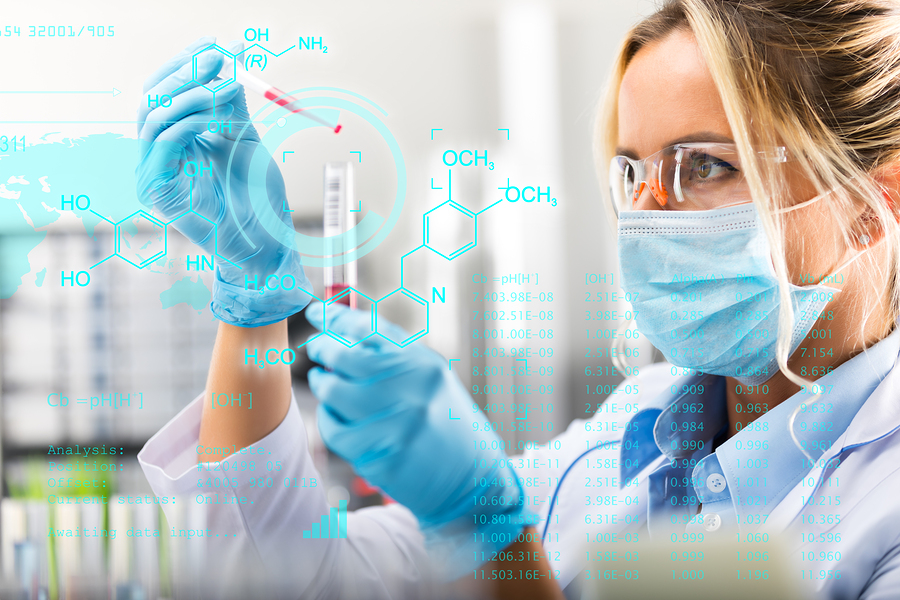Biologist, nurse, project manager, lab technician, patient… There is something for everyone in the field of pharmaceutical research. What does a day in this environment look like, ranging from preparation of a medicine to clinical trials? Melanie Pomerleau, senior director of quality assurance at Innovaderm Research, talks to us about her experience.
If Melanie Pomerleau could describe pharmaceutical research in two words, she would choose “passionate and diversified”.
From designing a new innovative drug to preparing a therapeutic procedure, there is no doubt that pharmaceutical research plays an essential role in our lives.
One day for researchers leads on to the next, but they do not necessarily resemble each other. The reason is quite simple:
leads on to the next, but they do not necessarily resemble each other. The reason is quite simple: there are plenty of players, ranging from vendors (e.g. laboratories to drug depot) and many roles such as Project Management, Data Management, Medical Monitor, Regulatory Affairs, Quality Assurance, etc. This is the case for studies managed by Innovaderm Research, a Clinical Research Organization where Melanie Pomerleau works, which focuses on clinical research in dermatology.
A long process
Before marketing a drug or product, there is a wide variety of steps to be taken. This is where the first researchers come into play. Everything begins with fundamental research.
“A molecule candidate is found, it is tested in vitro to predict what will happen when it is used on or in the human body,” explains Melanie Pomerleau, who has more than 20 years experience in pharmaceutical research.
Then comes the preclinical phase. Products are tested on animals to observe potential efficacy and side effects. The research continues with the clinical phase, where assessments are carried out on humans. This whole process is spread over several years.
A beehive of activity
At all of these stages a wide variety of workers is called upon, according to the needs of a research project. For clinical research, here is the procedure:
“First of all a research protocol is established to ensure the quality of the study’s results. Based on this protocol, clinical sites will be selected and all functions will be put in placeMelanie Pomerleau indicates.
In the heat of the action
Finding the perfect molecule candidate is an extensive process. “Depending on the toxicity of the product, it will be tested on healthy volunteers or on patients who have the targeted disease,” says the director.
After meeting the protocol inclusion criteria, the clinical study participants are invited to test the medication at the clinic or at home for one day up to few months. During the clinical trials several assessments are performed and adverse events are collected to establish the efficacy and safety of a drug.
Ethics officers play an important role in clinical research.
They have to ensure that each study participant provides informed consent.
That said, all these stages of pharmaceutical research are set to change significantly in the next few years due to advances in artificial intelligence technology… More to follow!
